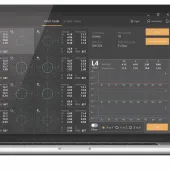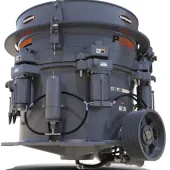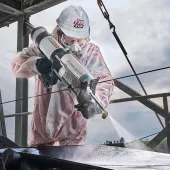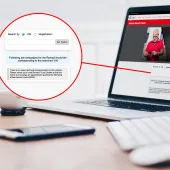The importance of oil sampling

Fuchs Lubricants technical expert explains why oil needs to be sampled correctly and regularly
SAMPLING oil correctly and regularly can help highlight potential problems in off-highway vehicles before they become serious, says Andy Brown, a technical expert with Fuchs Lubricants.
Sampling can help reduce costs by unearthing issues with a vehicle before it breaks down completely, thereby minimizing downtime, but Mr Brown warns that oil samples must be taken correctly in order to produce the most accurate results.
Fuchs Lubricants offer their customers the CENT sampling service, which produces clear, precise feedback in the form of graphs and reports along with suggestions for remedial action. The state-of-the-art production management tool indicates wear trends, additive levels and sources of contamination.
In 2016, Fuchs carried out around 27,000 sampling reports from across all industry sectors the company is involved in. Many of the reports were for off-highway vehicles.
‘If you examine the condition of the oil through sampling, you can see problems before they escalate and become bigger issues, said Mr Brown.
‘Customers send the sample to us and we look at viscosity, additive levels, wear levels, oxidation, and contaminants, such as coolant ingress, dirt ingress and soot levels. All of these things can tell us the condition of the oil and the condition of the engine, gearbox or hydraulic system.
‘When samples are taken over a period of time, you can start to trend results and see things like bearing wear, cylinder wear, and coolant contamination. For example, if there is a lot of dirt in the oil maybe the air filter hasn’t been changed, or perhaps there’s a split somewhere in the air-intake system.
‘It’s a powerful tool because downtime can be so costly. You can spot a problem and replace something for a nominal amount rather than leaving it and having catastrophic problems.
‘Off-highway vehicles must be ready to use when you need them otherwise you run the risk of costly downtime.’
Explaining why it is absolutely crucial that samples are taken properly, Mr Brown said: ‘The way sampling is done is massively important and it’s the bit that everyone gets wrong.
‘I remember an occasion when a bus company was extremely concerned that their vehicles were generating excess soot out of the exhaust.
‘We carried out extensive analysis on samples they gave us which confirmed their initial fears, following which there was a major investigation involving the engine manufacturer, the bus manufacturer and the filter manufacturers.
‘I asked the bus company how they had taken their samples and they had no idea.
‘It transpired that the samples had been taken after a weekend when the buses had stood idle and were cold. The engineer had opened the sump and taken the first few drops of oil that came out. This was the worst-case scenario, as when oil has sat for three days, a lot of particulates will drop out and go to the bottom.
‘You need to take a sample either when everything is running/circulating so nothing is dropping out, or as soon as possible after it is switched off.
‘In the case outlined above, when it was sampled properly, there was no soot in the oil, so whatever had caused the problem, it was nothing to do with soot in the oil.
‘It’s when and how you take the sample that is critical. The analysis side is easy but you can get completely the wrong answer if you haven’t sampled it correctly.’
The sample taken needs to be representative of the rest of the oil. Generally, this will be after it has passed through the engine but before it gets to the filter, which will remove contaminants.
A vampire pump can be used with a tube that is fed into the correct position. Crucially, the same sampling technique must be used every time.
Mr Brown added: ‘If you haven’t got a strategy of how to take samples and four or five people are doing it differently every time, you’ll get the scattergun approach. One person is doing it one way, someone else a different way, sometimes in the evening, sometimes in the morning. You end up with a random set of results.
‘If you’ve got a process but it’s not right, you can get some consistent results but they are actually wrong.
‘Sampling is very much worth doing – and it’s worth doing right.’









